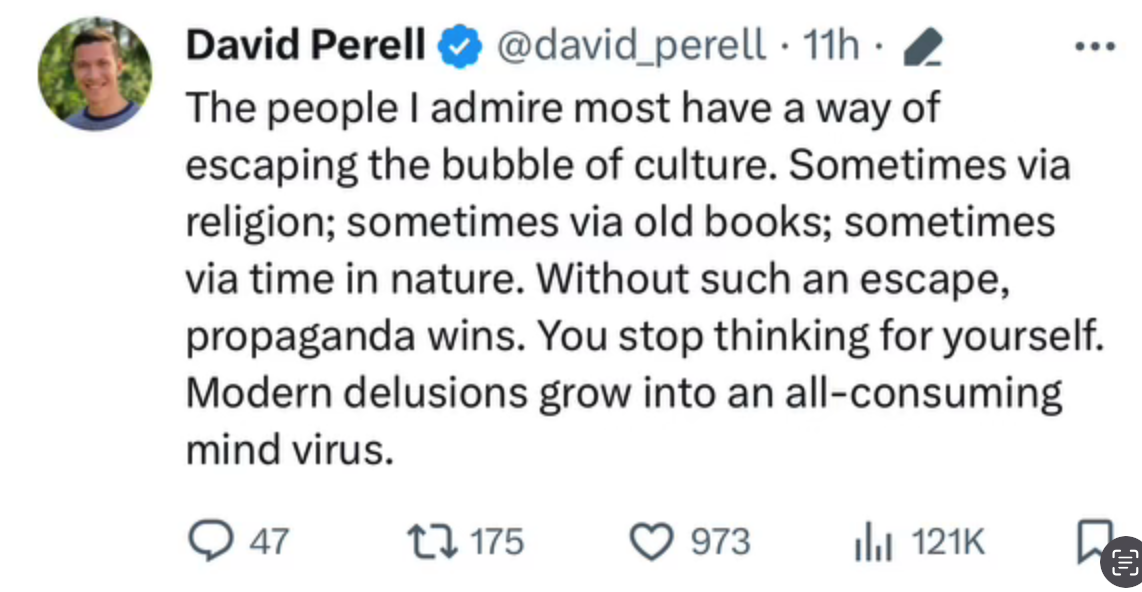Frugal vs. Independent
Here’s an important distinction about people who spend less than they earn.
Frugal, by my definition, means depriving yourself of something you want and could afford.
Not wanting something to begin with because you get your pleasure and identity from sources that can’t be purchased is something entirely different. The best word for it is probably independent.
Most people are wired to seek status and success, not necessarily happiness. It’s remarkable to watch someone fight back against that trend. From the outside they appear frugal. But in fact they’ve rejected what the world tells them they should want and looked deeper, finding their happiness elsewhere.
Last week it was revealed that Geoffrey Holt – a single, childless, 82-year-old man who lived in a trailer park in rural New Hampshire – died and left $3.8 million to his town.
That a humble man described as spending his day “sitting on his riding mower in the trailer park” was secretly a multi-millionaire shocked everyone who knew him – and apparently Holt was so unremarkable that few people actually knew him.
I highlighted a similar story in my book, The Psychology of Money. Ronald Read was a janitor and gas station attendant who left $4.8 million to charity when he died at age 92.
A reader once asked me: Do I admire Read?
For that matter, do I admire Geoffrey Holt?
I’m not quite sure, and I wish I had made that clearer in the book.
Holt and Read are stark examples of the fact that doing well with money isn’t about how smart you are or where you went to school. It’s just about having the right behavior – patience, control over greed and fear, long-term thinking, etc. That was the point I wanted to make.
But is it possible that Holt and Read would have been happier if they lived in a nicer house, wore nicer clothes, traveled the world, ate at nice restaurants, and donated their money while they were alive to see its impact?
Of course.
It’s possible. I don’t know if it’s even likely. There’s no way to know without a deeper knowledge of their personalities. It’s possible that Holt and Read themselves didn’t even know. Maybe they were frugal, depriving themselves of a better life. Maybe they were independent, and got so much joy thinking about how stunned their communities would be when they died.
What’s important is that nine out of 10 people will look at Holt and Read and assume they’re frugal almost to the point of mental illness. But I think it’s absolutely possible that they were independent, living their best lives.
David Perell recently wrote:

The world tells you – even by a mere whisper – that everyone should want the same things: A big house, a nice car, advanced degrees, credentials, social clubs, etc.
I like most of those things. But you have to realize how much of their appeal is an attraction to status, which can be completely different from happiness.
There’s a recent example of someone understanding the difference in real time that I think is more fascinating than Holt or Read’s story.
Chuck Feeney, who founded Duty Free stores, died last month.
The well-known part of Feeney’s story is that he gave away 99.99% of his $8 billion fortune years ago, before he died. He and his wife kept $2 million, lived in a small apartment, flew coach, and gave the rest to charity.
The less well-known part of Feeney’s story is that he once gave the High Life an honest try. The Washington Post wrote of his life in 1980s, when he was newly rich:
He had luxury apartments in New York, London and Paris and posh getaways in Aspen and the French Riviera. He hobnobbed with the other mega-rich on yachts and private jets. If he wanted it, he could afford it.
He quickly realized it wasn’t for him. Society told him he should want those things. But it wasn’t what actually made him happy.
Giving money away was.
“I’m happy when what I’m doing is helping people and unhappy when what I’m doing isn’t helping people,” Feeney said.
I love that.
Or more specifically: I love that he loved that.
He didn’t follow a typical path of what other people told him to like or how to live.
He found what made him happy.
He may have looked frugal, but he was actually the freest, most independent person you’ll ever hear of.